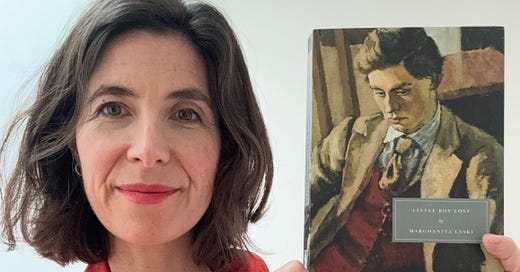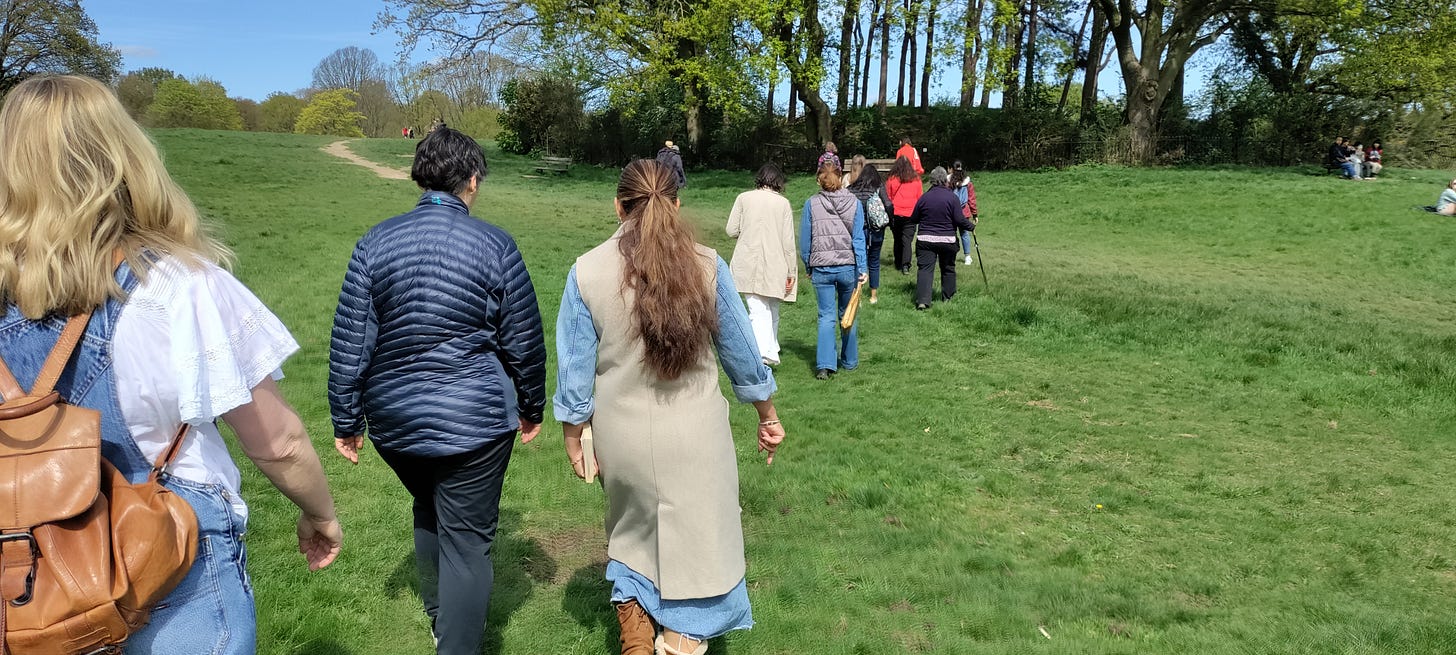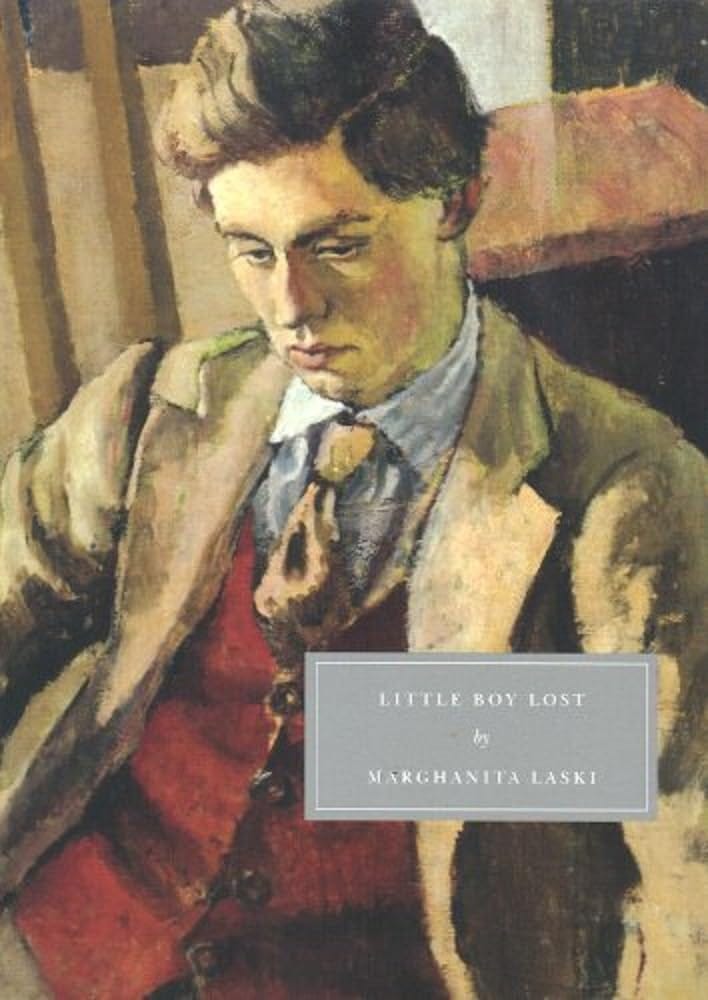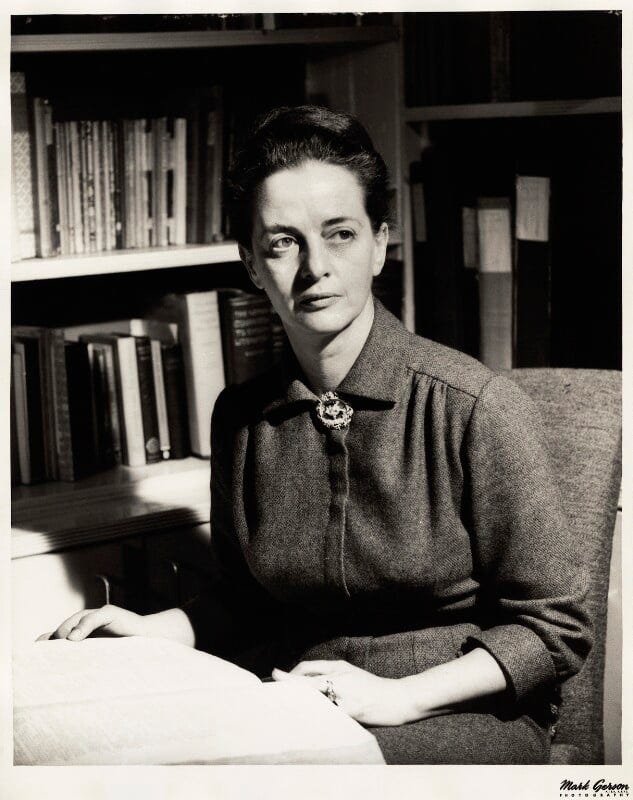Dear walking book clubbers,
I loved re-reading this surprisingly gripping and very fascinating novel about a heartbroken man travelling through war-torn France looking for his lost child. There’s so much in it - I especially love its psychological drama - and I can’t wait to hear what you make of it.
Please note that due to the Easter holidays, our walks are very early this month - THIS FRIDAY AND SUNDAY! Our zoom is mid-month on the 14th, and the Persephone Day Bath walk is at the month’s end, on Saturday 26th. Back to normal once we get to May!
Read on to find:
Details of our April events, including links to book tickets.
Discussion points to get you thinking about Little Boy Lost
Links to read and listen on.
I am very nearly there with our summer picks… watch this space.
Our April Little Boy Lost events
Please note that for the benefit of your fellow walkers, you need to have read the book before coming along to a walking book club. If you’ve not read the book, you are very welcome to join the zoom instead.
Emily’s Regent’s Park Walking Book Club: Friday 4th April, 12-1.45pm, setting off from Daunt Books, 84 Marylebone High Street, W1U 4QW, £10
Emily’s Hampstead Heath Walking Book Club: Sunday 6th April, 11.30-1pm, setting off from Daunt Books Hampstead, 51 South End Road, NW3 2QB, £8-£20
Emily’s Zoom Book Club: Monday 14th April, 8-9pm, £1-£15 PLEASE NOTE THE CHANGED DATE TO A WEEK AFTER THE WALKS!
In addition to our London walks, I will also be hosting a Bath special walking book club about this book as part of the Persephone Day, on Saturday April 26th. I’d love to see you there!
Buy Little Boy Lost from Daunt Books HERE and receive 10% off using the code WBC at checkout, or just tell them you’re in Emily’s Walking Book Club if you’re buying it in the shop.
Little Boy Lost by Marghanita Laski
Introduction & Discussion Points
Hilary Wainwright, poet and intellectual, goes to a ravaged France soon after the Second World War to trace his child, lost five years’ before. Will he find him? Is the child even his? Compulsive, moving and eye-opening, this nerve-shredding novel, first published in 1949, provides fascinating insight into France immediately after a War that left 13 million European children without one or both of their parents. We did discuss this in Emily’s Walking Book Club back in 2015 - I’ve decided occasionally to revisit some exceptional books from our early days.
Here are a few points to get you thinking, ahead of our discussions later in the month:
War-ravaged ruins
As I’ve been wrestling with the ideas in the book, I can see that Laski gives us different spheres to consider: there’s the psychological drama of Hilary himself along with the broader landscape of France (and indeed Europe). Both have suffered from the War, and, in its aftermath, are struggling to find the path to survival. How do you feel the setting of war-torn France complements Hilary in his quest?
A complicated moral universe
‘Don’t you wonder, with every stranger you meet, what he did under the Occupation?’ Hilary asks Pierre near the start. Pierre replies in the affirmative, but adds ‘I’m tired with “collaborationist” as a term of abuse; we each did under the Germans what we were capable of doing; what that was, was settled long before they arrived.' Thoughts please?! This is one of a few ideas about morality that Laski poses to her readers. How did you get on with navigating the book’s murky moral waters? It’s not helped by there not really being any characters who are entirely morally right!
Jean
What did you think of Laski’s portrayal of the little boy? Did it ring true to you? Did you feel the book worked on an immediate literal level in this respect, as well as the more symbolic level in which Jean could stand for the 13 million European children, who, after the War were left without one or both of their parents? And did the book make you think about these 13 million children afresh? I’m thinking in particular of two chilling conversations Hilary has: one with Pierre about the fate of children at the hands of the Nazis, and one with the Mother Superior about the survivors. Brutal reading, these bits.
Anyway, there is so much to discuss here - can’t wait to see you later in the month.
More about Marghanita Laski
THIS piece by Nicholas Lezard for the Guardian is a great jumping off point.
Do listen to THIS episode of Free Thinking with Matthew Sweet in which he talks to Howard Jacobson, Lara Feigel and Lisa Mullen about Marghanita Laski along with Betty Miller. The Laski section starts 29 minutes in.
The Persephone Perspective on this book, HERE, is a treasure trove. Persephone has beautifully republished 5 of her 6 novels, and you can find them all listed HERE in their page about the author. People rave about her novella, The Victorian Chaise-longue - it’s definitely on my TBR list as the saying goes.
If you’re interested in discovering more about her other work, THIS brief ‘Invisible Ink’ column by Christopher Fowler for the Independent gives a good feeling for the scope of it work. And THIS in the Sci-Fi Encyclopaedia gives a good feeling for that side of her work (she was the Observer’s sci-fi critic). HERE is an intriguing article about Laski’s theory of ‘everyday ecstasy’. Finally, HERE is Marghanita Laski reviewing Rosamund Lehmann for the LRB.
More news on our summer books soon,
Emily







What if he is looking for your child